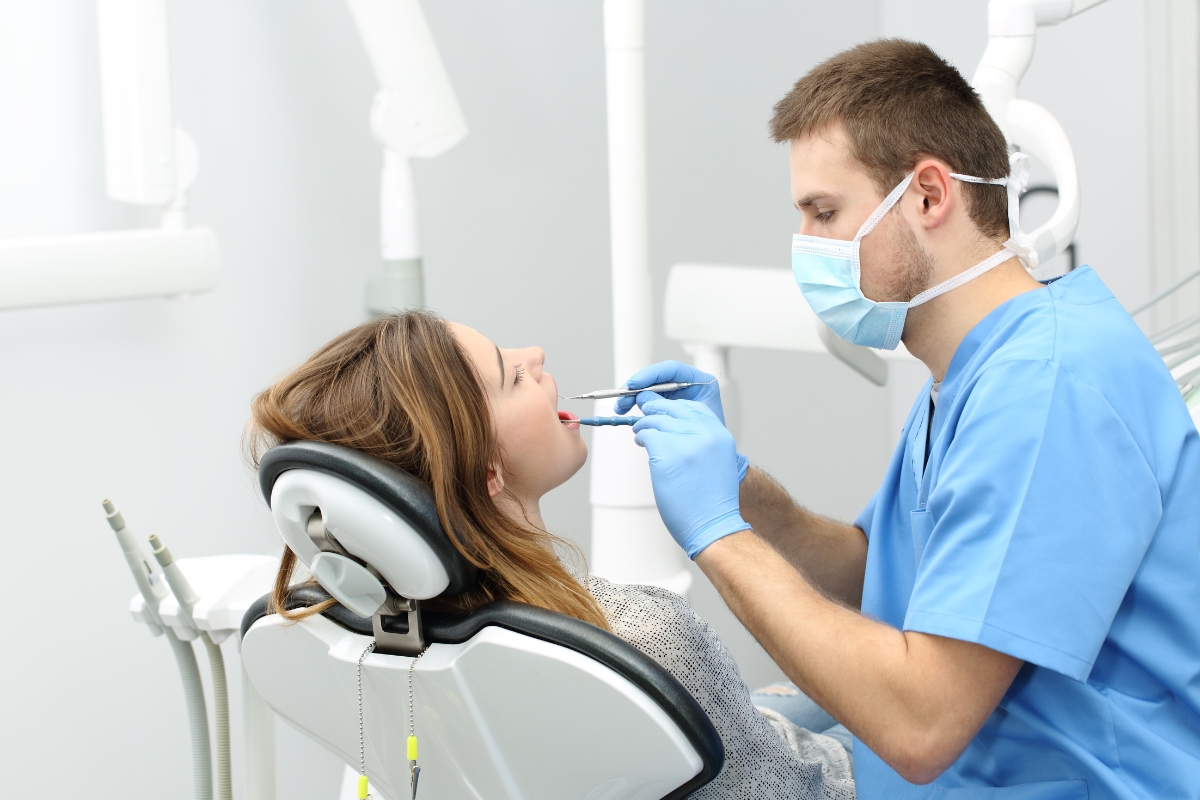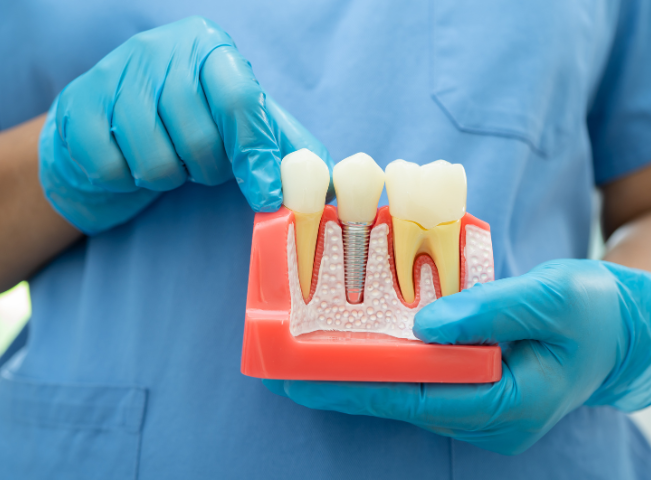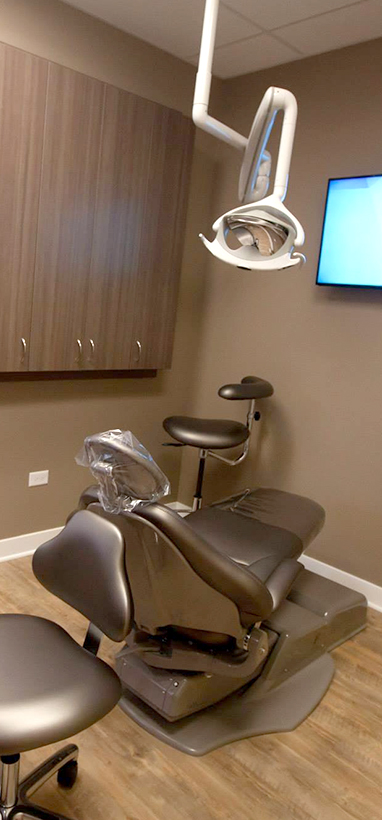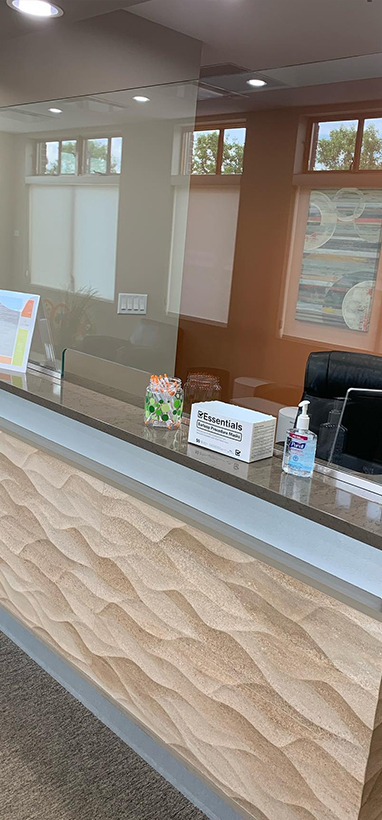1516 Legacy Cir, Naperville, IL 60563
What Can You Eat After Dental Implant
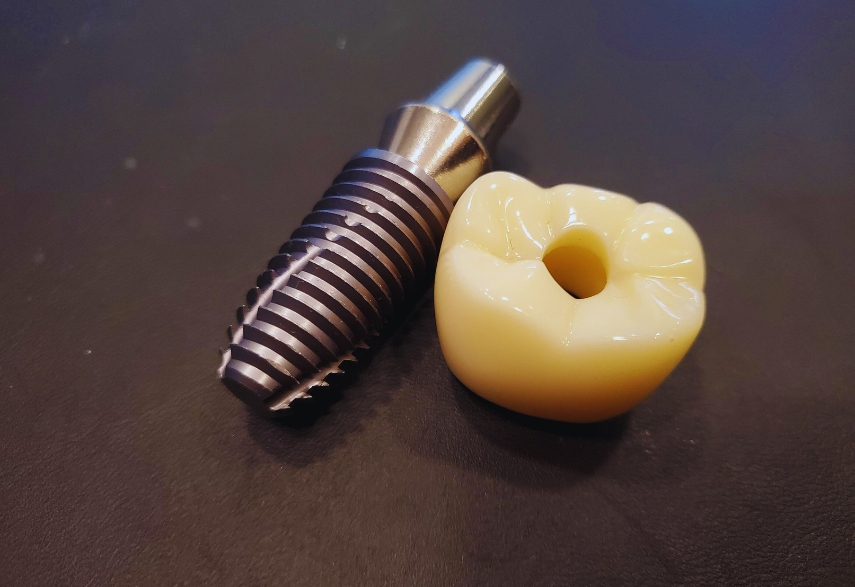
Dental implants are a long-term solution for replacing missing teeth. They restore function and appearance. The efficacy of this procedure has led millions to undergo the procedure. However, knowing what to eat after dental implant surgery improves healing and success rates.
Are you planning to get dental implant? See your dentist and discuss it.
Your post-operative diet can prevent complications and speed up recovery. If you’re getting dental implants, your oral surgeon will stress the importance of eating the right foods from day one.
What Happens During a Dental Implant Procedure?
A dental implant is a titanium post that replaces the root of a missing tooth. It serves as a stable anchor for a custom-made crown that mimics the look and function of a natural tooth. Oral surgeons insert the implant into the jawbone, where it eventually bonds with the bone. Let’s understand the procedure of dental implants here.
Step 1: The Initial Consultation
The first step is a consultation with your oral surgeon. They will evaluate your dental health, take X-rays or 3D scans, and determine if you have enough bone to support an implant. This planning stage ensures the implant procedure is safe and tailored to your needs.
Step 2: Implant Placement Surgery
During the procedure, the oral surgeon places the titanium post into your jawbone. Local anesthesia is typically used, and the surgery is often completed in one visit. Once placed, the healing process begins.
Step 3: The Healing Phase (Osseointegration)
Healing, also called osseointegration, is the most critical part of the process. Over the next few weeks or months, your jawbone fuses with the implant, creating a strong, stable base for the crown.
During this phase, your diet plays a vital role. Soft, easy-to-chew foods protect the implant site and support healing.
What you eat after dental implant surgery can affect recovery speed and implant success. To prevent irritation or implant failure, oral surgeons recommend avoiding hard, crunchy, spicy, or chewy foods.
Step 4: Crown Attachment
Once your implant site fully heals, your oral surgeon will attach a custom crown. This final step restores your smile and chewing ability. Whether you choose dental implants in Naperville or elsewhere, following your dietary instructions throughout the process increases the long-term success of your implant.
First 24 Hours: Keep It Liquid and Light
The first 24 hours after surgery are critical. Stick to a soft, liquid-based diet. Avoid anything too hot or cold.
Recommended foods:
- Lukewarm broths
- Smoothies (non-acidic, no straws)
- Applesauce
- Mashed potatoes
Avoid spicy, crunchy, or chewy foods. Do not consume anything too hot, as it can disrupt clotting. Chewing on the implant site may delay healing or cause discomfort. Focus on hydration and nourishment without putting stress on your new implant.
Days 2–7: Soft but Nourishing Foods
During this phase, slightly more texture is introduced. Be gentle with chewing and avoid the implant site.
Recommended foods:
- Scrambled eggs
- Oatmeal
- Yogurt
- Soft pasta
- Cooked vegetables
Avoid very hot foods. Let meals cool to a comfortable temperature. Do not chew directly on the implant. If your oral surgeon gave specific food instructions, follow them carefully. Gradually increase food variety, but stay in the soft zone.
Week 2 and Beyond: Slowly Back to Normal
You can begin adding solid foods after week two, with your dentist’s go-ahead. Listen to your body and proceed with care.
Try these foods:
- Soft meats like fish or shredded chicken
- Steamed rice
- Pancakes and soft bread
Continue avoiding anything that may disturb the implant site. Do not eat nuts, popcorn, or chewy candies yet. Oral surgeons typically advise caution until full healing. Maintain balanced meals and chew slowly.
What to Eat After Dental Implant Surgery
Understanding what to eat after dental implant surgery reduces risks. It keeps the area clean and free from pressure. A smart diet also fuels your body with what it needs to heal faster. Always follow the timeline your oral surgeons recommend.
Choose foods that are soft, moist, and rich in nutrients to protect your new dental implant. Avoid foods that require forceful chewing. Stay away from straws, too, as suction can dislodge blood clots. When unsure, stick to room-temperature, soft meals.
Dangerous Foods to Avoid Until Fully Healed
Some foods can cause your dental implant to fail. Avoid anything complicated, sticky, or acidic.
Stay away from:
- Hard foods (chips, carrots, ice)
- Sticky items (caramel, gum)
- Acidic options (citrus fruits, tomatoes)
These foods can stress your implant, cause inflammation, or delay bone healing. Oral surgeons stress the importance of avoiding these until the site heals fully. Stick to soft and safe options for now.
Healing times vary from person to person. You might feel ready to eat solid foods early, but don’t rush. Always follow your oral surgeon’s advice. What you eat after dental implant surgery matters. It plays a big part in your success. Today, patience and care will help your implant last many years.



